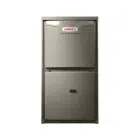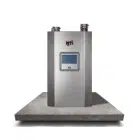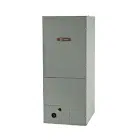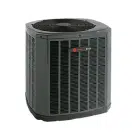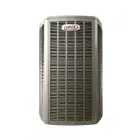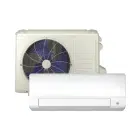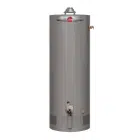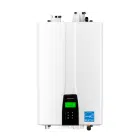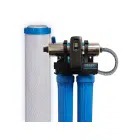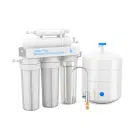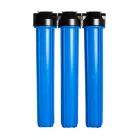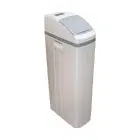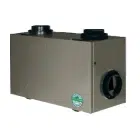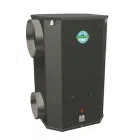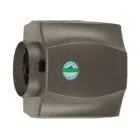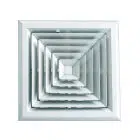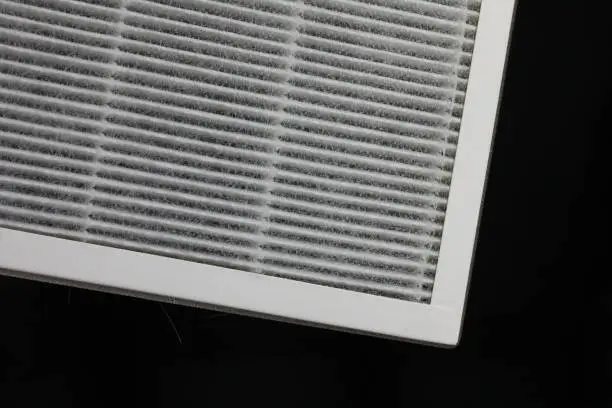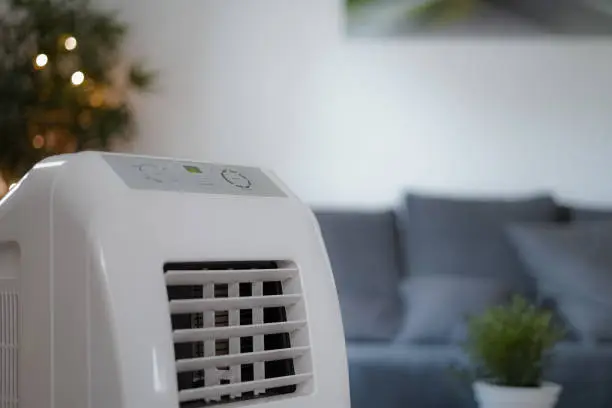
Table of Contents
Selecting the appropriate air conditioner for your home isn’t just about keeping cool during the warmer months; it’s about enhancing your comfort while optimizing energy efficiency and cost-effectiveness. Given Canada’s diverse climate, from its hot summers to freezing winters, the importance of choosing the right type of air conditioning system cannot be overstated. This guide aims to provide you with comprehensive insights into various types of air conditioners, helping you make an informed decision tailored to your needs and local climate conditions.
Overview of Types of Air Conditioners
Understanding the different types of air conditioners available is crucial to deciding which one is best suited for your home. Each type offers unique features and is designed to meet specific needs and space requirements. Let’s consider the main of them.
Central Air Conditioning
Central air conditioning systems are the most common choice for providing consistent cooling throughout entire homes, particularly in larger residences. These systems utilize a network of ducts to distribute cool air across various rooms, ensuring that each space maintains a steady and comfortable temperature. The central unit, which combines an evaporator, condenser, and compressor, is typically installed outside the home. Air is cooled at the central unit and then pushed through the ductwork by a blower or fan, reaching every part of the house. Central air conditioners are also known for their ability to filter and dehumidify the indoor air, contributing to a healthier living environment.
Pros | Cons |
|---|---|
Even distribution of cool air throughout the home | Higher installation and maintenance costs |
Efficient cooling for larger spaces | Requires ductwork, which can be invasive to install |
Can filter and dehumidify indoor air | Less energy-efficient for smaller spaces |
Centralized control and programmable thermostats | May lead to uneven cooling if ductwork is not well-designed |
Ductless Mini-Split Systems
Ductless mini-split systems are an excellent solution for homes without ductwork or when the goal is to cool specific zones or areas independently. These systems consist of an outdoor compressor unit and one or more indoor air-handling units, which are connected by a conduit carrying the power, refrigerant, and drain lines. Mini-splits offer individual control of each indoor unit, allowing for personalized temperature settings in different rooms or zones. This targeted cooling capability not only enhances comfort but also improves energy efficiency, as you only cool the spaces in use. Additionally, mini-splits are known for their quiet operation and minimal visual impact on a room’s interior.
Pros | Cons |
|---|---|
No need for ductwork, reducing installation complexity | Higher initial cost per cooling zone |
Individual zone control for personalized comfort | Requires professional installation for optimal performance |
Energy-efficient operation, reducing overall energy costs | Aesthetics of indoor units may not suit all interiors |
Quieter than many traditional systems | May require more indoor units for larger homes |
Portable and Window Air Conditioners
Portable and window air conditioners provide convenient, flexible cooling solutions, ideal for smaller spaces, rental properties, or seasonal use. Portable units can be moved from room to room and typically vent through a window using an included kit. Window air conditioners are installed in a window frame and are designed to cool the room in which they’re placed. Both types are self-contained units, meaning all components are enclosed within a single appliance. While they’re great for spot cooling, they’re not intended for whole-home climate control. These units are particularly appealing for their ease of installation and the fact that they don’t require significant changes to the property’s structure.
Pros | Cons |
|---|---|
No permanent installation required | Limited to cooling one room or small space |
Ideal for renters and temporary solutions | Can be noisy compared to built-in systems |
More affordable upfront costs | Less energy-efficient for larger areas |
Easy to install and remove as needed | Window units can obstruct outdoor views |
Heat Pumps
Heat pumps are versatile systems that provide both heating and cooling, making them an excellent year-round climate control solution. In the summer months, a heat pump works much like an air conditioner, extracting indoor heat and expelling it outside. In colder months, the process reverses, and the unit extracts heat from the outdoor air to warm the interior. This dual functionality makes heat pumps incredibly energy-efficient, as they transfer heat rather than generate it. They’re particularly suitable for moderate climates but can be equipped with auxiliary heating for colder Canadian regions.
Pros | Cons |
|---|---|
Provides both cooling and heating, reducing the need for a separate furnace | Less effective in extremely cold climates without supplemental heating |
Energy-efficient operation, especially in moderate climates | Higher initial installation cost than conventional air conditioners |
Can reduce overall energy consumption and utility bills | May require backup heating system for harsh winter conditions |
Environmentally friendly, reducing carbon footprint | Installation complexity and cost may be higher than traditional systems |
Whether you prioritize energy efficiency, individual room control, or the need for a versatile year-round solution, there’s an air conditioning option designed to meet your unique cooling and heating requirements, ensuring comfort and efficiency throughout the changing seasons.
Check out the best air conditioner brands and models 2024 in Canada in our previous article via the link below.
https://thehvacservice.ca/exploring-top-air-conditioner-brands-in-canada-models-reviewed-in-2024/
We hope this comparative table will assist you in making an informed decision regarding your central air conditioner selection. HVAC Service Solutions is always here to provide professional advice and help you determine the best choice for your specific needs.
So What Type of Air Conditioner Should I Choose?
When determining the best air conditioning system for your home, it’s essential to consider your specific cooling needs, which can vary greatly depending on your home’s size, design, and your personal preferences. Here’s how you can align your unique cooling requirements with the right type of air conditioner:
- Assessing Your Space: For larger homes with multiple rooms, a central air conditioning system offers a comprehensive solution that can cool every part of your house efficiently. However, if you reside in a smaller space or only need to cool a particular area, a portable or window air conditioner might be more suitable and cost-effective.
- Zoning Needs: If your household has varying cooling preferences or if certain areas need to be cooled at different times, consider a ductless mini-split system. These systems allow you to control the temperature in individual zones, providing customized comfort and improved energy efficiency.
- Installation Considerations: Your home’s existing infrastructure can also dictate your choice. Homes without ductwork are ideal candidates for ductless mini-split systems or window and portable units. In contrast, homes with existing ductwork may benefit more from the seamless integration of a central air conditioning system.
- Energy Efficiency Goals: If reducing your energy consumption and minimizing your environmental impact are priorities, focus on units with high Energy Star ratings. Heat pumps, for example, offer an energy-efficient alternative to traditional air conditioners by providing both cooling and heating capabilities, making them a versatile choice for year-round comfort.
- Long-Term Costs: Consider not only the initial purchase and installation costs but also the long-term operating costs. Energy-efficient models, while potentially more expensive upfront, can offer significant savings on energy bills over time.
By carefully considering these factors and understanding your specific cooling needs, you can select the air conditioner type that offers the best balance of comfort, efficiency, and cost-effectiveness for your home.
Choosing an Energy-Efficient Air Conditioning Unit
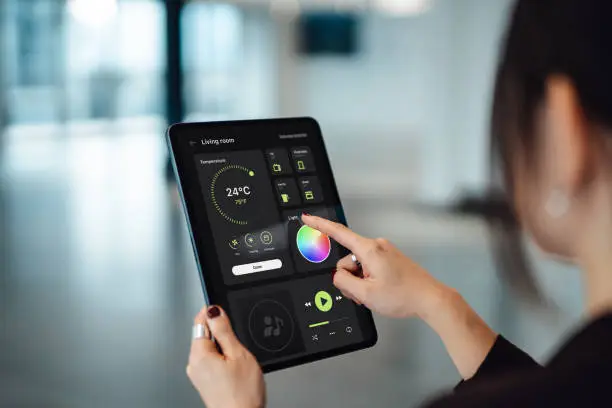
Selecting an air conditioning unit with a high Energy Star rating is pivotal in maximizing energy efficiency and reducing your carbon footprint.
Energy Star ratings are specifically designed to help consumers identify and choose energy-efficient products. When selecting an air conditioner, aim for a model with an Energy Star rating of at least 15 SEER (Seasonal Energy Efficiency Ratio) for central air conditioners and a high EER (Energy Efficiency Ratio) for room air conditioners. The higher the SEER and EER ratings, the more energy-efficient the unit will be, leading to lower electricity consumption and more significant savings on energy bills.
Additionally, energy-efficient air conditioners often incorporate cutting-edge features like programmable thermostats and variable speed motors, enhancing their operational efficiency. These features not only reduce energy usage but also improve indoor comfort by maintaining consistent temperature levels and reducing humidity. Choosing an air conditioning unit with these advanced features and a high Energy Star rating is a wise investment that benefits both your wallet and the environment over the unit’s lifespan.
Conclusion
Choosing the right air conditioning unit for your Canadian home is a decision that should be made with careful consideration of your specific needs, the size of your space, and your energy efficiency preferences. Whether you opt for a central air conditioning system, a ductless mini-split, a portable or window unit, or a versatile heat pump, ensure that your choice aligns with your cooling requirements and energy goals.
If you’re uncertain about which type of air conditioner is best for your home, we encourage you to contact our HVAC service experts. Our professionals can provide you with personalized advice and assistance, helping you select the ideal air conditioning solution that ensures your comfort throughout the warm seasons while optimizing energy use and cost efficiency. Choose wisely, and enjoy a cooler, more comfortable home environment with the right air conditioning unit.
Frequent Asked Questions
What are the main types of air conditioners available for home use?
In 2024, the main types of air conditioners available for residential use include central air conditioners, ductless mini-split systems, portable air conditioners, window air conditioners, and heat pumps. Central air conditioners are comprehensive systems designed to cool the entire home through a network of ducts and are ideal for larger homes. Ductless mini-split systems provide targeted cooling to specific areas or rooms without the need for ductwork, making them suitable for homes without existing ducts or for room-specific cooling needs. Portable air conditioners offer mobility and ease of installation, perfect for temporary cooling solutions or small spaces. Window air conditioners are mounted in window frames and are a good option for cooling individual rooms. Heat pumps can serve dual purposes, providing cooling in the summer and heating in the winter, and are particularly effective in moderate climates.
How do I choose the right size air conditioning unit for my home?
Choosing the right size air conditioning unit is crucial for ensuring efficient cooling and avoiding energy wastage. An undersized unit will struggle to cool your space adequately, while an oversized unit can lead to short cycling, increased wear on the system, and uneven temperature control. The size of an air conditioner is typically measured in tons or BTUs (British Thermal Units). To determine the right size, professionals use the Manual J Load calculation method, which considers various factors such as the home’s square footage, insulation levels, window sizes, and local climate. It’s recommended to consult with a qualified HVAC professional who can perform an accurate assessment and suggest the most suitable size based on your home’s specific characteristics.
What is an Energy Star rating, and why is it important when selecting an air conditioner?
The Energy Star rating is a certification provided by the U.S. Environmental Protection Agency (EPA) and the Department of Energy (DOE) to signify that an appliance meets specific energy efficiency guidelines. Air conditioners with an Energy Star rating are at least 10% more energy-efficient than the minimum federal standard. Choosing an Energy Star-rated air conditioner is important because it ensures lower energy consumption, which translates to reduced energy bills and a lower environmental impact. Energy Star-rated units often come with advanced features like programmable thermostats and variable speed compressors that further enhance their efficiency and operational flexibility.
Can a ductless mini-split system be used for whole-home cooling?
Yes, a ductless mini-split system can be scaled to provide whole-home cooling by installing multiple indoor air-handling units connected to one or several outdoor compressor units. Each indoor unit can be controlled independently, allowing for customized temperature settings in different rooms or zones. This setup is particularly beneficial for homes without existing ductwork, as it eliminates the need for invasive duct installation. It also allows for greater energy efficiency since you can cool only the areas that are in use. However, the initial installation cost might be higher compared to traditional systems, especially when multiple indoor units are required.
What are the advantages of a central air conditioning system?
Central air conditioning systems offer several advantages. They provide uniform cooling across all rooms, making them ideal for larger homes or spaces with multiple rooms. The centralized control feature allows homeowners to manage the temperature throughout the house from a single location. Additionally, central systems often come with advanced air filtration options that can improve indoor air quality by removing pollutants and allergens. The ductwork associated with central air systems also enables the possibility of integrating heating, further centralizing home climate control. Despite their higher upfront and installation costs, central air conditioners can be more cost-effective in the long run for larger homes due to their energy efficiency at scale.
Are portable air conditioners efficient in cooling large spaces?
Portable air conditioners are generally more suited for cooling smaller spaces or single rooms. They are not typically designed for large spaces or whole-home cooling due to their limited cooling capacity. While portable units offer the convenience of mobility and easy installation, they may not be as energy-efficient as other types of air conditioners when used in larger areas. For larger spaces, a central air conditioner or a ductless mini-split system would be more efficient and effective. However, for individuals living in smaller apartments, renting their living space, or looking to cool a specific area temporarily, portable air conditioners can be an excellent choice.
What is a SEER rating, and what is a good SEER number for an air conditioner?
The SEER (Seasonal Energy Efficiency Ratio) rating measures the cooling output of an air conditioner over a typical cooling season, divided by the energy it consumes in Watt-Hours. It is a metric used to gauge the efficiency of air conditioning units. The higher the SEER rating, the more efficient the air conditioner is. As of 2024, the U.S. Department of Energy requires a minimum SEER rating of 14 for new air conditioners in most of the United States, with some regions requiring a minimum of 15 due to their hotter climates. A good SEER rating for an air conditioner would be one that is higher than these minimum standards. Generally, a SEER rating of 15 or above is considered efficient and can lead to significant savings on energy bills in the long run. Units with SEER ratings of 20 or above are considered highly efficient, although they come with a higher initial cost. When selecting an air conditioner, balancing the SEER rating with the upfront cost and your long-term energy savings is crucial to making a cost-effective decision.
Can I install a window air conditioner in any window?
Not all windows are suitable for window air conditioner installations. The most compatible windows for standard window air conditioner units are double-hung windows. The window should be strong enough to support the weight of the unit and should close securely around the air conditioner to prevent air leaks and maintain efficiency. Sliding or casement windows are typically not suitable for standard window unit installations without a special installation kit or modifications. Additionally, it’s important to consider the location of the window – it should allow for proper ventilation and heat exchange and not be blocked by furniture, curtains, or external obstructions. It’s always recommended to follow the manufacturer’s installation guidelines or consult with a professional to ensure safe and effective installation.
How often should an air conditioning system be serviced?
Regular servicing is key to maintaining the efficiency, performance, and longevity of your air conditioning system. It is generally recommended that your air conditioning system be serviced at least once a year. This annual service should include checking the refrigerant levels, inspecting and cleaning the coils, ensuring the fans and motors are functioning properly, and replacing or cleaning the air filters. Regular maintenance can prevent unexpected breakdowns, improve energy efficiency, and extend the life of your air conditioning unit. Some systems may require additional checks or maintenance depending on their usage and environment, so it’s always best to consult with an HVAC professional for a tailored maintenance schedule.
What should I consider if I want to use a heat pump as my air conditioning unit?
Using a heat pump as your air conditioning unit can be a highly efficient and environmentally friendly choice. Heat pumps are particularly suitable for climates where extreme cold is not a common issue, as their efficiency can decrease in very low temperatures. When considering a heat pump for air conditioning, you should evaluate its SEER rating for cooling efficiency and its HSPF (Heating Seasonal Performance Factor) rating for heating efficiency. Ensure that the heat pump is appropriately sized for your space to maintain efficiency. It’s also important to consider whether you might need a supplemental heating source for the colder months. Consulting with an HVAC professional to assess your specific needs and climate conditions can help you determine if a heat pump is the best option for your cooling and heating requirements.
Share
